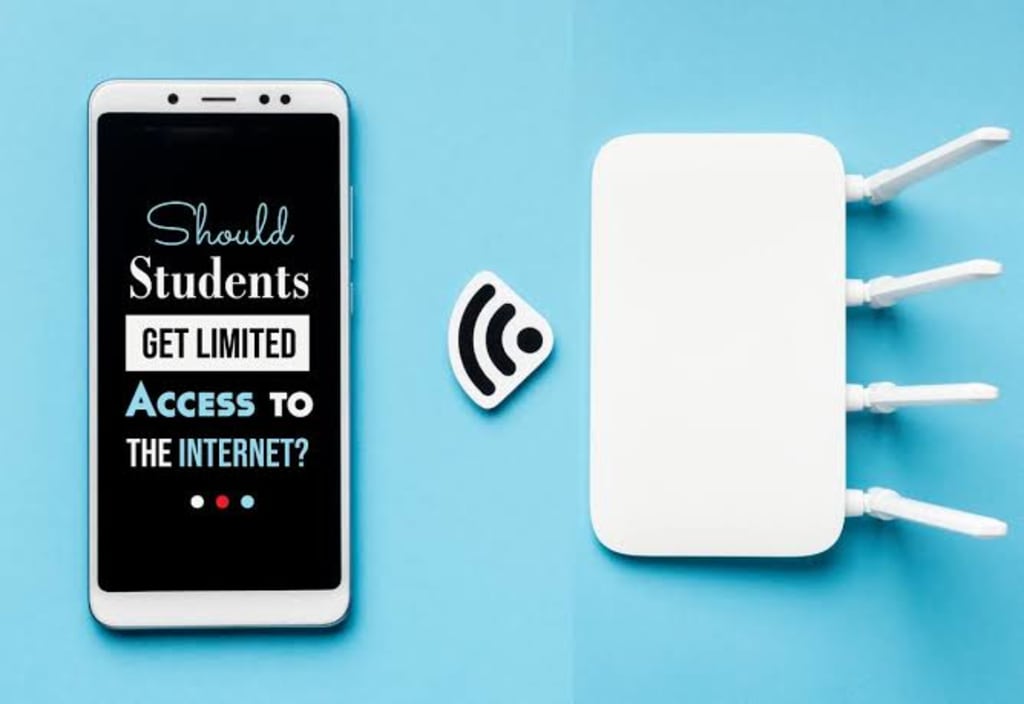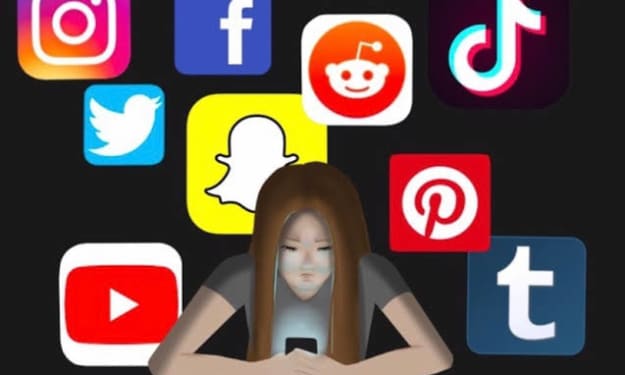Should Students get limited access to the Internet?
Internet

As the world becomes more digitally focused, the internet has become an integral part of our daily lives. With just a few clicks, students have access to a vast amount of information and resources that can aid in their education. However, with the convenience of the internet comes the danger of distraction and potential exposure to harmful content. This has led to a debate on whether students should be given limited access to the internet. In this article, we will explore both sides of the argument and determine whether students should be given limited access to the internet.
On the one hand, proponents of limited access to the internet argue that it can be a major source of distraction for students. Social media, online games, and other forms of entertainment can quickly draw students away from their studies, resulting in poor academic performance. Additionally, the internet is rife with potentially harmful content, such as pornography and violent material, which can negatively impact a student's moral and social development.
Moreover, internet addiction has become a growing concern, particularly among young people. Excessive use of the internet can lead to a range of issues, including poor sleep, decreased physical activity, and even mental health problems such as depression and anxiety. By limiting students' access to the internet, it is argued that we can help prevent such issues from arising.
On the other hand, opponents of limited access to the internet argue that it can be detrimental to a student's education. The internet is an invaluable source of information and resources that can aid in research and learning. By restricting access to the internet, students are limited in their ability to learn and may miss out on key information and insights that can enhance their academic performance.
Moreover, the internet is becoming increasingly important in the modern workforce. Many jobs require knowledge of digital tools and technologies, and limiting students' access to the internet may hinder their ability to develop these skills. By giving students free access to the internet, we can better prepare them for their future careers and provide them with the necessary tools to succeed.
So, what is the answer? Should students be given limited access to the internet? The answer is not as simple as a yes or no. The internet is a valuable tool that can aid in education and provide students with the resources they need to succeed. However, it is also a potential source of distraction and harm that can negatively impact a student's academic and social development.
Instead, the focus should be on responsible internet use. Rather than limiting access, we should educate students on how to use the internet in a safe and responsible manner. This includes educating them on the dangers of excessive internet use, the importance of online privacy, and how to identify and avoid potentially harmful content.
Additionally, we should work to develop digital citizenship skills among students. This includes teaching them how to interact with others online in a respectful and responsible manner, how to evaluate the credibility of online sources, and how to protect their personal information online.
In conclusion, while limited access to the internet may have some potential benefits, it is not the solution to the challenges posed by the internet. Instead, we should focus on educating students on responsible internet use and developing their digital citizenship skills. By doing so, we can help students make the most of the valuable resources available online while mitigating the potential risks and harms that come with it.
The internet has revolutionized the way we access and share information. Students have access to an endless supply of resources that can aid in their education. However, with the abundance of information available, it is easy to become overwhelmed and distracted. Students can easily become sidetracked by social media, online games, and other forms of entertainment, leading to a decrease in academic performance.
Moreover, the internet is a potential source of harm. The dangers of excessive internet use, such as internet addiction, depression, and anxiety, are well-documented. Additionally, the internet can expose students to harmful content, such as pornography and violent material, which can negatively impact their moral and social development.
Given these concerns, some argue that students should be given limited access to the internet. However, this solution is not without its drawbacks. Limiting internet access can hinder a student's ability to learn and develop key digital skills. Many jobs require knowledge of digital tools and technologies, and by limiting access to the internet, students may miss out on valuable opportunities to develop these skills.
Furthermore, it is becoming increasingly clear that digital literacy and citizenship skills are essential in the modern age. By providing students with responsible internet access and educating them on how to use the internet safely and responsibly, we can better prepare them for their future careers and ensure that they are equipped with the necessary tools to succeed.
To this end, educators and parents must work together to develop a comprehensive approach to responsible internet use. This includes teaching students how to evaluate the credibility of online sources, how to interact with others online in a respectful and responsible manner, and how to protect their personal information online.
Additionally, it is important to set clear boundaries and guidelines for internet use. Students should be made aware of the dangers of excessive internet use and should be encouraged to take breaks and engage in other activities. By promoting a healthy balance between online and offline activities, we can help students avoid the negative consequences of excessive internet use.
In conclusion, while limited internet access may seem like a simple solution to the challenges posed by the internet, it is not the most effective or practical approach. Instead, we must focus on developing responsible internet use and digital citizenship skills among students. By doing so, we can ensure that students have access to the valuable resources available online while mitigating the potential risks and harms that come with it. Ultimately, the goal should be to strike a balance between the benefits and drawbacks of the internet and to empower students to use it in a safe, responsible, and effective manner





Comments (1)
Hi, nice article 👍